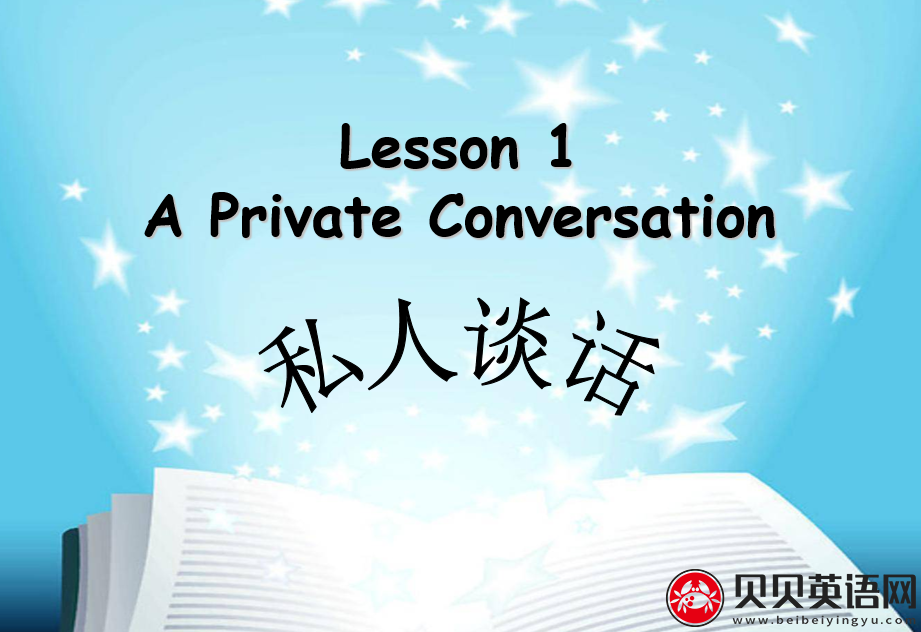欢迎访问贝贝英语网!

1、where did the writer go last week?
2、did he enjoy the play or not?
3、who was sitting behind him?
4、were they talking loudly ,or they talking quietly ?
5、could the writer hear the actors or not?
6、did he turn around or not?
7、what did he say?
8、did the young man say ,“the play is not interesting” or did he say ,“this is a private
conversation”?
句子一般由六个成份组成:
主语、谓语、宾语、定语、状语、补语。
1、主语是句子陈述的对象,说明是谁或什么。
如“我写字”中的“我”,就是主语。
2、谓语动词的位置一般在主语之后。
谓语由动词构成,依据其在句中繁简程度可把谓语分为简单谓语和复合谓语两类。
3、宾语是动作、行为的对象,是动作的承受者。
宾语由名词、代词、不定式或相当于名词的词、短语来担任。
4、定语是用来限定、修饰名词或代词的,定语是对名词或代词起修饰、限定作用的词、短语或句子,汉语中常用‘的’表示。
充当定语的有:主要由形容词担任。
5、状语是动词或形容词前面的连带成分,
用来修饰、限制动词或形容词,表示动作的状态、方式、时间、处所或程度等.
6、补语是动词或形容词后面的连带成分,述补结构中补充说明述语的结果、程度、趋向、可能、状态、数量等的成分。